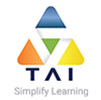Ember.js is an open-source JavaScript web applications framework, based on the Model–view–view-model (MVVM) pattern. It supports scalable single-page web applications by incorporating common idioms and best practices into the framework. Ember is used on many popular websites, including Discourse, Groupon, LinkedIn, Vine, Live Nation, Nordstrom, although primarily considered a framework for the web, it also supports desktop and mobile applications. The most notable example of an Ember desktop application is Apple Music.
About Ember JS
Prerequisites
Exposure to web technologies.
HTML and JavaScript working knowledge
Course Content
Day1
JavaScript – Review
JavaScript language Basics
Dynamic typing and functions
Function dynamics and namespaces
Working with objects
Window and Document
Browser DOM Manipulations with java Script
Dynamic script loading
Cross browser compatibility issues and techniques to resolve them.
Event model
Object Oriented JavaScript Usage
Custom objects
Applying inheritance
Working with Prototype inheritance
Defining and using class and objects
Extending the objects
Java Script libraries and Frameworks
Ajax Review
The need of Ajax
Traditional Web Application
An Ajax Web Application
Ajax for the web user
Working with Ajax
Creation of XmlHttpRequest Object
Handle the Response by call back
Cross browser issues
XML and JSON Processing with Ajax
Graphic UI applications with Ajax
Cross site access
The MVC Architecture
Code separation and concerns
Observers and notifications
Avoid boilerplate coding
Implement MVC pattern
Data binding with model and view
Use of templates
Observers
The Module pattern
Day 2
Ember JS MVC Framework
Introduction and features
Concepts
o Models
o The Router
o Controller
o Views
o Components
o Templates
o Helpers
o expressions
Ember JS architecture
Implement data binding
Using model in application
View implementation
Ember JS MVC Application
Application Structure
Handlebars Templates with expressions
Component Naming conventions
Using Ember Data
Template Naming Conventions
Implement data binding with observers
Ember-Data FixtureAdapter
LocalStorage Adapter
Define actions
Using Router
Formatting with helpers
Working with computed properties
MVC application
Ember-CLI
The Node Package Manager
The Bower for dependency management
Install the Ember CLI
The Ember CLI commands
Generate Ember application components
Build and run the Ember web application.
Working with modules and Ember Resolver
Testing the Model compositions
Testing with Mocks and fixtures
Generate reports
Day 3
Ember JS with Server
Server Communication
Response management
Dealing with data types
XML, JSON support
Consuming Rest based web services
MVC CRUD application
Advanced Ember JS
Template pre-compilation
Exception handling
Global functions
Routing
Update templates with Handlebars
Custom components
Working with multiple views
Day4
QUnit Test Framework – Introduction
JavaScript language overview
JavaScript unit testing
QUnit test framework and test runner
Write sample tests and execute in the browser
Working with assertions
Custom Assertions
Testing the DOM manipulations
Testing for User Actions
Asynchronous Callbacks
Grouping Tests
Test Driven Development
Test automation
Debugging and Testing
Tools for debugging
Unit Testing the js code
Integration testing
Test the controller
Test the model
Unit Testing the Computed Properties
Testing the Model compositions
Testing with Mocks and fixtures
Install Testem and Karma test runner with PhantomJS
Invoke the test cases from command line.
Day5
The Ember-QUnit Test extension
Ember-QUnit overview
Global installation
The test helpers
Write test cases for controller and Model
Automate the test execution with Test runner
Set up and Tear down the test
Testing the Routes
Test user interface logic
Testing with views
Application testing
Integration Testing
More Features
Monitor the test coverage
Effective unit testing approach
End to End Test Automation
Test report tools
Testing practices
Jenkins CI server Integration
Call Now- +91-921-276-0556


